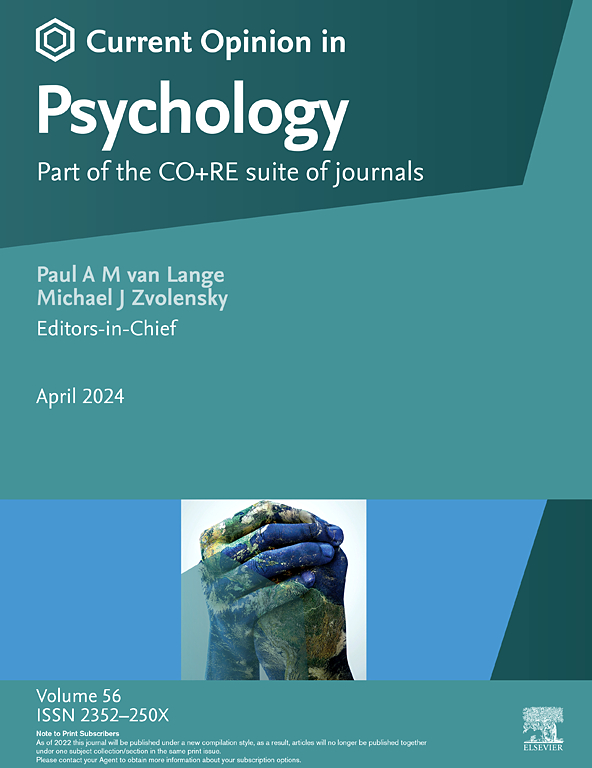Obstacles for marginalized group members in obtaining leadership positions: Threats and opportunities
IF 6.3
2区 心理学
Q1 PSYCHOLOGY, MULTIDISCIPLINARY
引用次数: 0
Abstract
Rising to higher hierarchical positions is a struggle for those who do not fit the stereotypical leadership mold. Implicit Leadership Theories (ILTs) associate leadership with dominant groups (e.g., white, male), which limits opportunities of non-prototypical individuals (e.g., women, ethnic minorities) to claim or be granted leadership roles. We first review evidence of the barriers members of non-prototypical groups encounter in leadership advancement, and subsequently explore theoretical mechanisms explaining why these barriers persist. Finally, we advocate for a shift from bias awareness and affirmative action as potential solutions to an opportunity-threat approach that speaks directly to the cognitive nature of leadership categorization. We propose that by fostering an opportunity mindset—one that promotes open and flexible thinking—rather than a threat mindset—defined by rigidity and narrowmindedness—the traditional ‘leader’ profile can be broadened and made more inclusive and as such will stimulate leadership claiming by and granting to non-prototypical individuals.
边缘化群体成员获得领导职位的障碍:威胁与机遇
对于那些不符合传统领导模式的人来说,晋升到更高的职位是一场斗争。内隐领导理论(ILTs)将领导与优势群体(如白人、男性)联系在一起,这限制了非原型个体(如女性、少数民族)要求或被授予领导角色的机会。我们首先回顾了非原型群体成员在领导晋升中遇到障碍的证据,随后探讨了解释这些障碍持续存在的理论机制。最后,我们主张从偏见意识和平权行动作为潜在的解决方案转变为机会-威胁方法,直接谈到领导力分类的认知本质。我们建议,通过培养一种机会心态——一种促进开放和灵活思维的心态——而不是一种由僵化和狭隘所定义的威胁心态——传统的“领导者”形象可以被拓宽,变得更具包容性,这样就会刺激非原型个体的领导要求和授予。
本文章由计算机程序翻译,如有差异,请以英文原文为准。
求助全文
约1分钟内获得全文
求助全文
来源期刊

Current Opinion in Psychology
PSYCHOLOGY, MULTIDISCIPLINARY-
CiteScore
12.10
自引率
3.40%
发文量
293
审稿时长
53 days
期刊介绍:
Current Opinion in Psychology is part of the Current Opinion and Research (CO+RE) suite of journals and is a companion to the primary research, open access journal, Current Research in Ecological and Social Psychology. CO+RE journals leverage the Current Opinion legacy of editorial excellence, high-impact, and global reach to ensure they are a widely-read resource that is integral to scientists' workflows.
Current Opinion in Psychology is divided into themed sections, some of which may be reviewed on an annual basis if appropriate. The amount of space devoted to each section is related to its importance. The topics covered will include:
* Biological psychology
* Clinical psychology
* Cognitive psychology
* Community psychology
* Comparative psychology
* Developmental psychology
* Educational psychology
* Environmental psychology
* Evolutionary psychology
* Health psychology
* Neuropsychology
* Personality psychology
* Social psychology
 求助内容:
求助内容: 应助结果提醒方式:
应助结果提醒方式:


